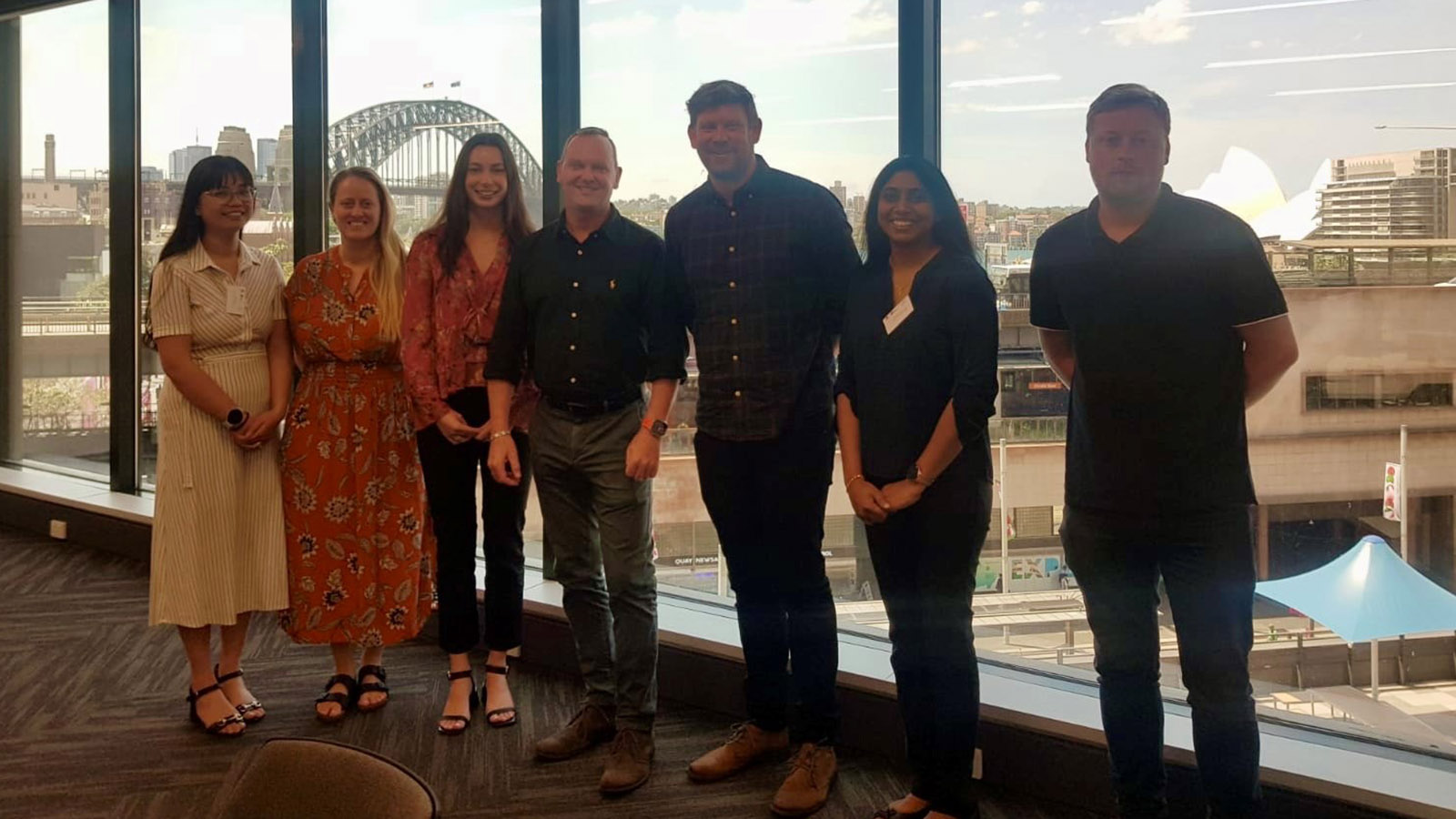November 16, 2023
Heart research seminar focuses on consumer and community partnerships
UOW researchers partner with consumers to improve cardiovascular health outcomes
The University of Wollongong (UOW) hosted the NSW Cardiovascular Research Network Consumer Engagement Masterclass for early and mid-career researchers on Thursday 16 November at the UOW Sydney CBD Campus .
The seminar focused on the value of involving consumers across all aspects of research from co-conceptualisation and co-design, through to dissemination.
Health Consumers NSW Consumer Engagement Manager Carrie Hayter, who herself lives with coronary artery disease, said it was vital to include people with living experience of heart disease in cardiovascular research.
“Research in cardiovascular disease improves health outcomes for all Australians, yet it is light years behind cancer research in involving consumers and people with living experience of heart disease,” she said.
“Imagine the impact on people living with heart disease and their allies if all cardiovascular researchers worked to involve people living with heart disease in all aspects of their research. Nothing about us without us.”
Among the UOW researchers attending is Dr Sabine Allida, a Research Fellow (Implementation Science) in the School of Nursing, whose research focuses on enhancing healthcare delivery to improve cardiovascular health outcomes through evidence synthesis and research translation. One of her current projects involves partnering with consumers in co-design of a stroke prevention educational program for multicultural communities.
“Cardiovascular disease and stroke are among Australia’s biggest killers. Studies show that people from culturally and linguistically diverse communities have higher rates of cardiovascular disease, stroke, and their modifiable risk factors,” Dr Allida said.
“People from culturally and linguistically diverse communities are also less likely to access health care or undertake preventative behaviours such as seeking help for their mental health, which also affects cardiovascular disease and stroke risk – one in six strokes are linked to mental illness.
“Although health education strategies are known to improve self-management to mitigate chronic disease progression, people from culturally and linguistically diverse communities often do not have access to culturally relevant health information.
“Critical to addressing this problem is to provide these communities with high-quality and culturally relevant health information to acquire the knowledge and skills to manage their risk factors, live a heart-healthy lifestyle, maintain mental well-being, and make informed decisions about their health.”
Dr Allida’s research project will explore the perspectives of health professionals, expert key stakeholders and people from Arabic, Dari, Chinese and Vietnamese communities on the prevention educational needs of these communities, for the purpose of co-designing a culturally tailored, digital cardiovascular disease and stroke prevention education program for people from those communities.
Also attending is Dr Julee McDonagh, a Senior Research Fellow (Frailty) in the School of Nursing and a registered nurse with over a decade of clinical nursing experience.
Dr McDonagh is partnering with consumers in designing new frailty interventions for cardiovascular disease.
“Frailty in the context of cardiovascular disease is associated with a three-fold risk of rehospitalisation and mortality as well as having significant impacts on quality-of-life and physical functioning,” she said.
“Several interventions to improve frailty in older adults have been suggested (such as resistance exercise and nutritional supplementation), yet there is a lack of evidence regarding what specific interventions work in people with cardiovascular diseases. And to date there has been limited consumer-involvement in the development of such interventions.
“It is essential to partner with people living with cardiovascular disease and frailty to co-design feasible and acceptable interventions, rather than telling people what we think works, we need to partner with them!”.
This co-design work is the first part of a larger body of work led by Dr Julee McDonagh that seeks to explore ways to improve the management of people living with frailty, cardiovascular disease and other comorbid conditions.
UOW Professor of Nursing (Chronic & Complex Care) and NHMRC Emerging Leadership Fellow Caleb Ferguson will take part in a consumer and researcher panel discussion.
UOW’s School of Nursing was recently named as the country’s leading institution for nursing research in The Australian 2023 Research Magazine.
The NSW Cardiovascular Research Network (CVRN) is a cross-institutional, multidisciplinary Network, established in 2005 to enhance and support cardiovascular research in NSW through collaboration, innovation and increased research funding.
